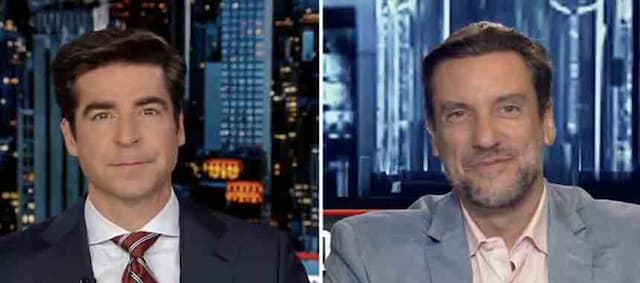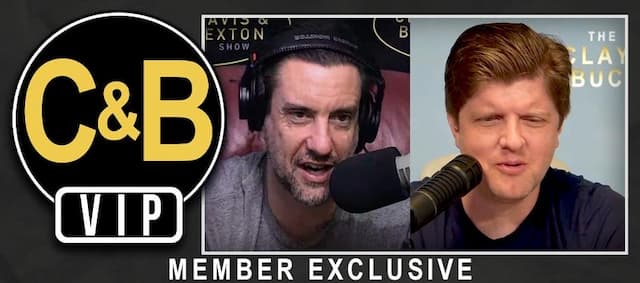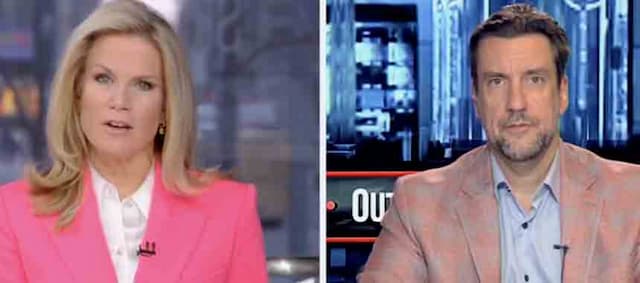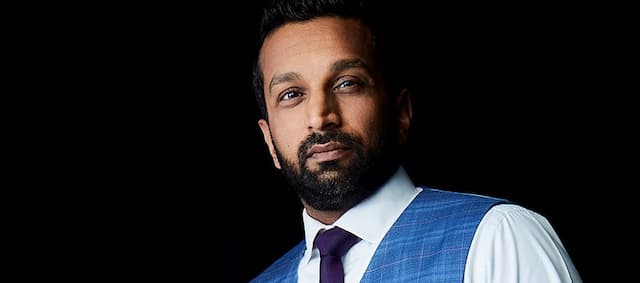Heather Mac Donald on the Tyre Nichols Case
BUCK: As we were talking about the Tyre Nichols case, we have to look at law enforcement, we have to look at the narrative around all this based on the facts and the data. We can’t think of anybody better to help us do that right now than Heather Mac Donald. She is a senior fellow at the Manhattan Institute, contributing editor at City Journal, author of The War on Cops. And she just has a piece out now at the Spectator. This is the title: “Tyre Nichols and the New Black-Cop White Supremacy.” Thanks for being with us, Heather, as always. Appreciate it.
MAC DONALD: Such a pleasure to be with you, Buck and Clay. Thank you.
BUCK: So, tell us, Heather, you know this piece, you’re getting right into it. We discussed this a bit on the show. Five black cops beat a black man to death. We all condemned it. It was excessive use of force. It’s quite obvious from the video. And there were a lot of people claiming white supremacy in the media. What is this all about?
“Racism has become an unfalsifiable proposition. Such is the central take-away from the race industry’s tortured reaction to a brutal police beating in Memphis…”
America will learn all the wrong lessons from this tragedy.
My latest @TheSpectator https://t.co/ehmmhDsOtV
— Heather Mac Donald (@HMDatMI) February 1, 2023
MAC DONALD: It’s about the fact that racism is now an unfalsifiable proposition. The race industry is not going to ever cede ground. They have now got a new rule for racism, which is where anything bad that happens to a black person is a function of racism, regardless of the intentions or race of the perpetrator. So, they’ve got it covered. And we have, the, you know, the tragedy of the beating now becoming a farce. Given the reaction of Benjamin Crump, of the New York Times, of the race activists, of Joe Biden — eager as always, to slot in his favorite narrative about blacks being right to fear for their lives every time they go outside, their daily fear and trauma.
None of this is borne out by the facts. Here’s the facts. The police are the saviors in the black community. They are not the oppressors. When the police back off, more black lives are taken. Black lives are taken by the dozens every single day. There are dozens of blacks killed in homicide. That’s more than all white and Hispanic homicide victims combined, even though blacks are only 13% of the population. And the people doing those killings of blacks are overwhelmingly other blacks. They are not the police. In 2022, there were seven unarmed, allegedly unarmed blacks killed by police officers in fatal shootings. That’s out of a homicide population. We don’t know 2022 numbers yet, but in 2020, there were 10,000 blacks killed in homicide. There’s 44 million blacks in the country. Compare that to seven unarmed, allegedly unarmed blacks killed by the police. That is not the problem in the black community, criminals are.
 CLAY: Heather, one of the conversations we have… first of all, thanks for coming on. You do fantastic work looking at the data and analyzing it from a policing perspective. One of the conversations Buck and I were having yesterday, and I think it is one that certainly the nation needs to have, is how difficult it is becoming to recruit police who want to be willing to do this job, given the amount of peril that they’re under, the increasing numbers of police that have been killed in the past several years, but also the just absolute disrespect that they receive in many parts of the country now. How difficult is it becoming to recruit police and how is that going to make their job that much more difficult, not only in terms of the people doing the job, but also in terms of the relationships that they have to develop?
CLAY: Heather, one of the conversations we have… first of all, thanks for coming on. You do fantastic work looking at the data and analyzing it from a policing perspective. One of the conversations Buck and I were having yesterday, and I think it is one that certainly the nation needs to have, is how difficult it is becoming to recruit police who want to be willing to do this job, given the amount of peril that they’re under, the increasing numbers of police that have been killed in the past several years, but also the just absolute disrespect that they receive in many parts of the country now. How difficult is it becoming to recruit police and how is that going to make their job that much more difficult, not only in terms of the people doing the job, but also in terms of the relationships that they have to develop?
MAC DONALD: Well, you’re absolutely right to take this beyond just the recruitment and retention crisis. But let’s look at that. It is an absolute catastrophe. There is…I don’t know of a single police department that is doing well at this point. Post George Floyd, the narrative that became decibel level high at after Michael Brown phony narrative about hands up, don’t shoot and the Ferguson effect of cops de-policing and criminals getting emboldened. After George Floyd race riots you had every mainstream institution in this country — banks, corporations, universities, press — all declaring that the criminal justice system was systemically racist. America was systemically racist, of course, but above all, it was the cops.
And this is not an encouraging thing to hear if you are thinking about joining a police force. There’s no other profession from day one on the job, the elite assumption is, is that you are a racist. So, we have attrition at enormously high rates, an impossibility to recruit. And, as you say, from an officer’s perspective, when there are not enough people to help you out — you don’t have backup — if you’re facing an armed, violent, resisting suspect there may be nobody available for the dispatcher to call to help you out, that’s going to make you less likely, quite appropriately understandably, to engage in discretionary proactive policing.
If you see somebody on a corner at 2 a.m. hitching up his waistband as if he has a gun. You don’t have to make that stop because there has not been a crime yet. But if you’re a good proactive cop trying to protect that community from yet another retaliatory gang shooting, you should get out of your car and ask a few questions. But if you know that your department is way abusing overtime, is stretched, that there are no patrol cars available, you’re going to drive on by because you don’t want to get in a potentially lethal confrontation with somebody. And the problem is, well, we now have a perfect storm where we are desperate to recruit at the same time that the pressure has been on for years to recruit on the basis of race, to have race trump merit.
 And what happens when, when that is the case and departments lower educational and cognitive standards and they lower the requirements of a clean criminal background check in order to broaden the pool of potentially quantifiable recruits, you get corruption scandals and you get more excessive force. But that will probably continue, you know, now that we have the theme that, well, blacks are white supremacists, but the issue is black victims, black victims, black victims. Even though we’ve now decided that black cops are racist, too, I can guarantee you that the response to this terrible, terrible beating will be both de-policing and an increased push for diversity hiring.
And what happens when, when that is the case and departments lower educational and cognitive standards and they lower the requirements of a clean criminal background check in order to broaden the pool of potentially quantifiable recruits, you get corruption scandals and you get more excessive force. But that will probably continue, you know, now that we have the theme that, well, blacks are white supremacists, but the issue is black victims, black victims, black victims. Even though we’ve now decided that black cops are racist, too, I can guarantee you that the response to this terrible, terrible beating will be both de-policing and an increased push for diversity hiring.
BUCK: We’re speaking to Heather Mac Donald. She’s got a piece that we’ve linked up at ClayAndBuck.com, “Tyre Nichols and the New Black-Cop White Supremacy.” She also has a book coming out When Race Trumps Merit How the Pursuit of Equity Sacrifices Excellence Destroys Beauty, and Threatens Lives. Heather, are we seeing, based on the response that is occurring in cities now — not in all, but in some — are Democrats at the point, because let’s be honest, it’s Democrats who run these cities, whether it’s Memphis or L.A. or New York, are they at the point where they’re starting to have to bow to the reality of facts when it comes to policing and move more toward a rational approach? Or have you just seen the activists continue to get their way? I mean, where’s the momentum?
MAC DONALD: Well, after this beating, I hear renewed calls for abolition. But, you know, I think the conservatives were wrong strategically. They put too much emphasis initially on defunding and the actual word itself. There, in fact, were very few Democratic politicians who are actually calling for defunding or dismantling police departments. And Biden could rightly say, “Oh, well, look at, I’ve put funding in my, you know, George Floyd Bill or whatever for more cops hiring,” at the same time that his rhetoric makes it virtually impossible that that funding will be taken up for cop hiring because nobody wants to join a profession where the president tells you that you’re preying on black children every single day. So, I don’t know. There’s a lot of division, I know, in conservative ranks about how to read the midterm elections. I, as a pessimist by nature, do not think that the midterm elections showed that the country is ready to say, “You know what? The police are the solution. They’re not the problem.”
BUCK: So, we haven’t suffered enough, basically, Heather. We haven’t suffered enough. That’s where we are.
MAC DONALD: Not enough.
CLAY: Heather, I think this is not getting enough attention and I’m sure that, you know, the latest numbers and the trend lines. Police are being murdered, killed on the job in massively increasing numbers over the last three or four years. How prevalent is that becoming and what does the statistical data reflect, that not only are cops being disrespected more by citizens, that’s leading directly to more cops dying on the job?
 MAC DONALD: Oh, it certainly is. I mean, in last year, there were 73 cops that were murdered. That was a massive jump. And when you do it on a per capita basis, looking at those 73 murdered cops compared to a police force nationally of about under 700,000 officers, and you compare that to the number of unarmed blacks who were killed by cops. And traditionally black males have made up 42% of all cop killers nationwide, even though they’re 6% of the population. A police officer is 400 times as likely to be killed by a black male as an unarmed black is to be killed by a police officer. People are resisting arrest.
MAC DONALD: Oh, it certainly is. I mean, in last year, there were 73 cops that were murdered. That was a massive jump. And when you do it on a per capita basis, looking at those 73 murdered cops compared to a police force nationally of about under 700,000 officers, and you compare that to the number of unarmed blacks who were killed by cops. And traditionally black males have made up 42% of all cop killers nationwide, even though they’re 6% of the population. A police officer is 400 times as likely to be killed by a black male as an unarmed black is to be killed by a police officer. People are resisting arrest.
And of course, every time you demonize the cops, as we’re doing now, you’re going to increase hatred, resentment, tensions in the community and resisting arrest. And that puts officers’ lives in danger. In danger. And when you delegitimate the policing profession and the criminal justice system more generally, as Biden did both before and after the release of the of the Tyre Nichols video, saying, “Well, you know, we still don’t…we have a criminal justice system that refuses to mete out fair treatment.” Those words have very, very serious consequences. People approach interactions with hostility. They are less inclined to obey lawful orders. We could end virtually all cop killings tomorrow.
That is, officer-involved killings when the officer shoots a civilian, if people complied with commands and did not resist arrest. Now, I’m sympathetic to Tyre Nichols taking off at this point, although we do not have the full tapes. Perhaps he was violently resisting arrest before trying to grab a gun. This well may be true because there are parts of the videos we have not seen. But from what we see, I actually feel sorry for the guy and I understand him taking off and running. But as a general matter, if the cop tells you to do something, you follow commands and you will not be shot or roughed up. Period.
CLAY: I’m glad you’re bringing that up, Heather, because that is what I tell my kids and that’s what I would encourage everybody out there listening who has kids and grandkids. Look, if you believe your constitutional rights are being violated by a police officer, you have time to challenge that in the court, comply with their initial demands as best you can. Do not accelerate the intensity of that violence by not complying. I wish everyone in America would share that message with their kids and their grandkids. And I say kids and grandkids because by and large, young men are the ones that are getting in trouble for violent acts and are creating and acting violently, Heather. So, I’m glad that you’re pointing that out. Didn’t you think that based on what we’ve seen so far of the Tyre Nichols video, that it was actually far worse than the George Floyd video?
WATCH: I joined @TuckerCarlson tonight to discuss Tyre Nichols, the Memphis police officers, and changes to American policing since the George Floyd riots in 2020. pic.twitter.com/jjIALuvSq8
— Heather Mac Donald (@HMDatMI) January 31, 2023
MAC DONALD: Oh, absolutely. I mean, this was a deliberate aggression and it was also, I mean, the tactics are just abysmal. These guys — it makes the Keystone cops look like they’re a, you know, finely tuned corps de ballet with Baryshnikov or something. It is just atrocious. I don’t know if these cops were, from the start, incapable of absorbing training or if they simply don’t have decent training in Memphis. They clearly need training in controlling stress. But, yes, they are what appears to be — and again, we do not know the context. We do not know whether he was high on drugs. We don’t even have a proper autopsy. But it appears to be gratuitous use of force. And Chauvin was stolid and impassive.
There’s many police officers who will tell you that the hold he was using was, in fact, legitimate under Minneapolis rules. But this was something far beyond that. And I’ve also had officers tell me that it looks like they are all reluctant to get down on the ground with him and use their need to restrain him as we saw with Chauvin and are standing over him and administering these completely feckless blows. Somebody has suggested that may also be one of the usual unintended consequences of our overreaction to the Chauvin killing. And now maybe people are not willing to get down and use legitimate tactics in, and are instead resorting to the blows and the batons and the kicks.
CLAY: Heather Mac Donald, keep up the fantastic work. We appreciate you giving the time to us today. Encourage everybody to check out her work. You can find more about Heather on ClayAndBuck.com. Heather, thank you so much.
MAC DONALD: Such an honor, Clay and Buck. Thank you so much.





